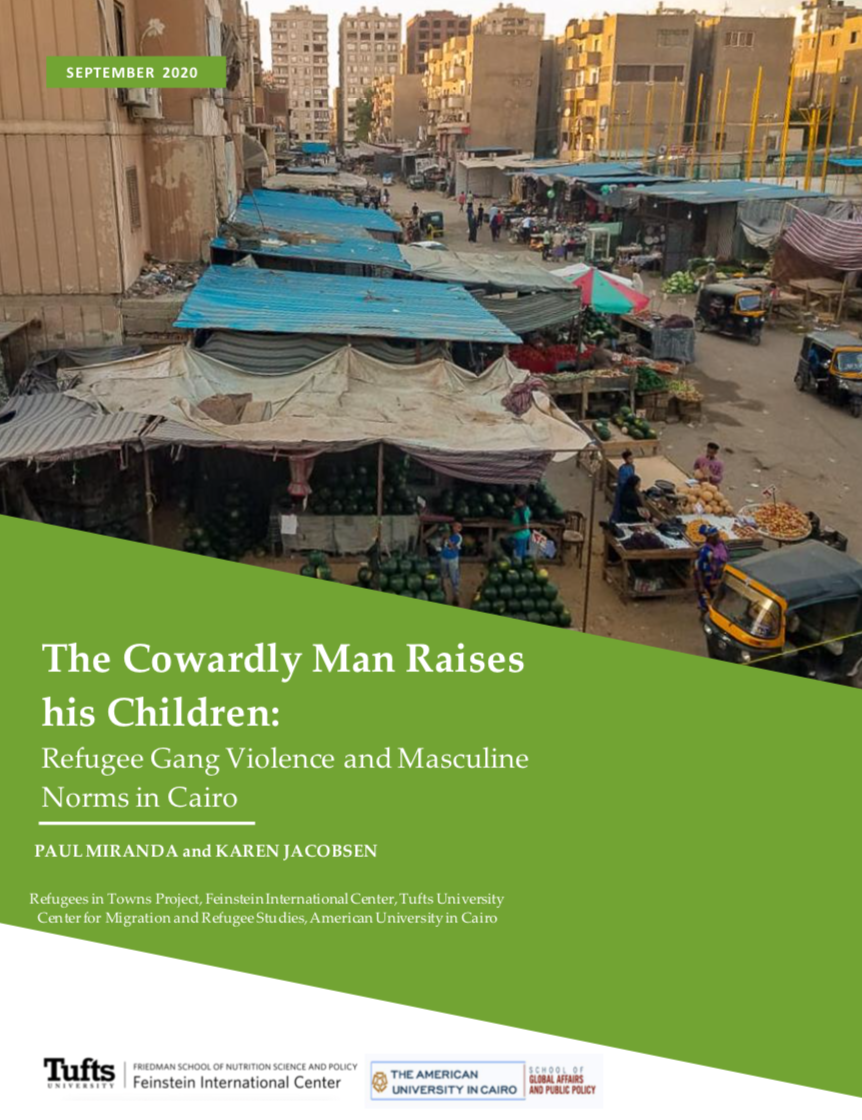Sudanese, South Sudanese, and African refugee communities in Cairo, Egypt have raised the issue of gang violence as a major concern for their communities for over a decade. Despite the damaging effects violence has on refugee communities, humanitarian organizations in Cairo have only launched a limited number of interventions to address gang violence due its complicated and sensitive nature.
This report analyzes Sudanese and South Sudanese gang violence, focusing on how conceptions of masculinity reproduce violence and influence young people as they opt to join neighborhood groups. The report explores refugee communities’ grassroots efforts to reduce violence and shows how these efforts, while fragmented due to a lack of support, have positive tangible effects. Lastly, the report analyzes whether evidence-based models for violence prevention fit the local context and makes recommendations for how humanitarian organizations could use these models to support and strengthen refugee community violence prevention efforts.







